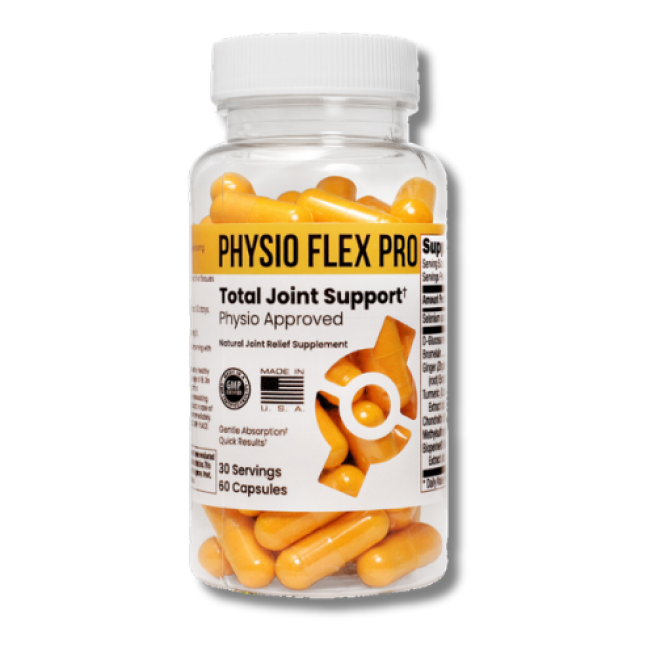You've heard the buzz about bromelain, the miracle enzyme derived from pineapples, celebrated for its myriad health benefits. But amidst the sea of information, one question remains unanswered: How long does it actually take for bromelain to work?
Whether you're a health enthusiast who's just stumbled upon this natural remedy or someone who's already invested in bromelain supplements, the anticipation of results can be both exciting and nerve-wracking.
Dive into this comprehensive guide as we unravel scientific insights and user experiences to shed light on bromelain's efficacy timeline.
By the end of this article, you'll not only have a clear understanding but also the confidence to make informed decisions about incorporating bromelain into your wellness journey.
What is Bromelain?
Bromelain refers to a combination of proteolytic enzymes that can be found in the pineapple plant. According to the National Center for Complementary and Integrative Health, natives of Central and South America historically used pineapple for different ailments like digestive orders.
This is specifically focused on the core and stem of the pineapple. As a complex enzyme mixture, bromelain includes various proteases or enzymes that break down protein molecules into amino acids and smaller peptides. Due to its anti-inflammatory and proteolytic properties, this enzyme mixture has a wide range of applications.
The increasing popularity of bromelain is evident in the health and wellness community due to several factors. Bromelain has gained attention due to its anti-inflammatory properties, multi-purpose use, alternative to synthetic products, and as a natural and plant-based remedy for conditions.
A 2012 study published in the National Library of Medicine concluded that bromelain has no major side effects even after prolonged use since it’s well absorbed in the body after oral administration.
Origin and Composition
Pineapple (Ananas comosus) is the most prominent plant belonging to the family of bromelain.
A 2021 study published on MDPI showed that 1876 was the first time bromelain was identified. However, until later years, it wasn’t fully characterized, isolated, and purified. Still, bromelain remains the chief and most widely explored among proteolytic enzymes such as comosain, which can be found in a pineapple plant.
The key enzymatic properties of bromelain are its proteolytic activity, substrate specificity, pH sensitivity, temperature sensitivity, anti-inflammatory action, fibrinolytic activity, antiplatelet activity, and enzyme combinations.
→ How Much Bromelain is in Pineapple?
Traditional Uses
According to the book, “Tropical Fruits: From Cultivation to Consumption and Health Benefits,” the proteolytic activity and concentration of ‘bromelain’ increases as the plant develops and compared to fruits, the protease activity is higher in stems. The reason why the demand for bromelain is rising quickly is related to its anticancer, anti-inflammatory, anticoagulative, fibrinolytic, and antiedematous properties, which are described in the literature.
Bromelain, as a dietary supplement, is promoted for reducing pain and swelling, according to the National Center for Complementary and Integrative Health.
This is particular on the gums, nose sinuses, and other parts after injury or surgery. It’s promoted for cancer, osteoarthritis, and digestive problems. Moreover, it’s also responsible for treating skin conditions and allergies.
Scientific Studies on Bromelain’s Effectiveness
Bromelain and Sinusitis
A 2016 study published in Spandidos Publications discovered that many reports documented bromelain’s benefits for sinusitis.
The administration of bromelain among children who have acute sinusitis was shown in a previous study. This result accelerated recovery and lessened the duration of symptoms in comparison with usual care regimens.
The anti-inflammatory effects of bromelain can help alleviate symptoms such as swelling and inflammation in the nasal passages and improve overall breathing. Moreover, sinusitis usually contributes to nasal congestion due to the production of thick mucus.
The enzymatic activity of bromelain might help break down this mucus, lessening the sensation of congestion and making it easier to clear the airways.
Bromelain and Arthritis
A study published in the National Library of Medicine showed groups that encountered a reduction in joint tenderness and symptoms of pain and swelling. The groups were administered by an 1890 mg/day of daily bromelain dose.
Another is an open study on bromelain using two dose regimes (200 and 400 mg) for one month of treatment intervention on healthy adults with no medical diagnosis while having acute knee pain.
Results showed a significant clinical improvement in physical function, psychological well-being, and stiffness. However, there were several methodological shortcomings, such as the absence of a control group and the fact that the adults don’t have a formal knee pain diagnosis.
Bromelain can be an effective alternative to nonsteroidal anti-inflammatory drugs (NSAIDs) when paired with other oral enzymes like trypsin and rutin.
A 2022 study showed results of this mixture of oral enzymes as effective in both pain in motion and at rest. This rapid action distinguishes oral enzymes from slow-acting symptomatic drugs like glucosamine and chondroitin.
Bromelain’s Anti-inflammatory and Analgesic Properties
The use of bromelain at varying doses and differing durations, as reported by studies, imposed positive clinical effects in 18 patients. This 2004 study confirmed the effects as measured by assessing the reduction of pain or joint stiffness and soft tissue swelling.
How Long Does it Take for Bromelain to Work?
Factors Influencing Bromelain’s Effectiveness
- Dosage - Before taking any dosage of bromelain, it’s essential to seek guidance from your healthcare provider first. This is necessary if you’re seeking the correct dose based on your condition. Generally, adults use bromelain in daily doses of 40-400 mg for up to 13 months.
- Individual body composition and metabolism - Remember that not everyone may have the same experience in taking bromelain based on their conditions and medical histories. So, such bromelain dosage may work for some but not immediately for others. Assess your responses to allergies and sensitivities when taking bromelain.
General Timeline
How Long Does It Take For Bromelain To Work For Digestion?
- 1-3 hours
Taking bromelain before meals will start working the moment you begin to eat. It can potentially reduce discomfort and bloating with protein-enriched meals since it helps break down meals in the digestive tract.
The dosage taken can be the influence of its effectiveness. Higher doses can result in more evident effects of digestion. However, it’s important to take note to seek the guidance of a healthcare professional and to follow the recommended dosage on the level of the given supplement.
How Long Does It Take For Bromelain To Work For Inflammation and Pain?
- 7 days
There have been beneficial anti-inflammatory effects found in patients with cancer and HIV based on a 2010 book about women’s health.
Thirty-six patients in one randomized study were assigned either to doxycycline (100mg, twice daily) or tetracycline-HCI plus bromelain (250 and 40mg, respectively, four times per day) for a period of 14 days. The pathogen was eliminated after seven days in 66.7% of the patients treated with tetracycline-HCI plus bromelain.
There are cases where long-term use of bromelain is necessary to experience sustained relief from inflammation and pain. This is due to ongoing inflammation in chronic conditions.
How Long Does It Take For Bromelain To Work For Sinusitis?
- 9 days or a couple of weeks
This was proven according to a study conducted by German researchers in terms of bromelain being effective in speedy recovery by children who have chronic sinusitis.
However, unlike severe or chronic cases, mild cases of sinusitis might respond more immediately to treatment.
Overall, it might take several days to a couple of weeks to notice improvements, depending on the cause of your sinusitis.
How Long Does It Take For Bromelain To Work For Wound Healing?
- 48-72 hours
This duration was confirmed in a recent study from the European Review for Medical and Pharmacological Sciences. Long-term application for 48 to 72 hours of bromelain may be beneficial and convenient for wound healing and growth-inducing.
Of course, you still need to consider some factors, such as immune function, nutrition, and overall health. These can affect the ability of the body to heal wounds, so try applying a holistic approach to enhance the effects of bromelain.
Safety and Side Effects
Despite its anti-inflammatory and proteolytic properties, bromelain can still have its potential side effects, such as:
- Bleeding
- Skin rash
- Headache
- Upset stomach
- Throat irritations
- Allergic reactions (Especially those who are sensitive to pineapple)
People who are allergic to pineapple should refrain from taking bromelain as it will only intensify their allergic reactions.
Recommendations for Safe Usage
The German Commission E recommended taking 80 to 320 mg 2 to 3 times daily. Higher doses may be prescribed for specific conditions. For pain-relieving and anti-inflammatory effects, doses may range from 500 to 2000 milligrams, which are taken between meals. Moreover, a dosage of 400 milligrams per day is advisable for sinusitis and respiratory conditions.
If you have existing health conditions, experience side effects while taking bromelain, or have doubts about the supplement, it’s advisable to consult with a healthcare professional. They can always provide personalized advice depending on your current health status.
FAQs
Q1: Are there any risks associated with bromelain consumption?
A1: Bromelain consumption can impose risks such as allergic reactions, digestive upset, skin irritation, and gastrointestinal distress.
Q2: Can bromelain be used alongside other medications?
A2: Yes, some medications can be antiplatelet drugs, antibiotics, and herbal supplements. Therefore, it’s important to be cautious and consult with your doctor before using any medicines.
Q3: Is bromelain effective for conditions other than sinusitis and arthritis?
A3: Aside from sinusitis and arthritis, bromelain also has potential benefits in terms of digestive issues, cancer, cardiovascular health, and inflammation.
Q4: How is bromelain typically administered?
A4: Bromelain is usually available in a variety of administrations, including food and beverages, topical products, dietary supplements, and in powdered form.
Conclusion
Made from a combination of proteolytic enzymes, bromelain is highly recognized due to its anti-inflammatory and proteolytic properties. It’s a huge win for the health and wellness community to continue using bromelain as a dietary supplement for conditions like cancer, osteoarthritis, and digestive problems.
The general timeline in ensuring the effectiveness of bromelain in different health conditions shows that the duration will still depend on the underlying condition, your medical history, and individual experiences.
This is why it’s essential to consult with a medical professional before taking bromelain to test and assess its potential benefits and downsides to your health.





